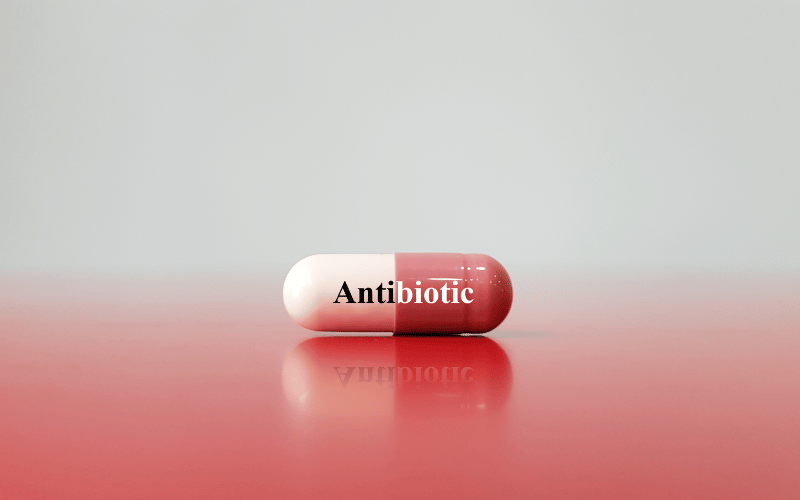1520 Green Oak Place, Suite B Kingwood, Tx 77339
How To Get Rid Of Tooth Infections Without Antibiotics?

Have you ever endured the unbearable torment of a toothache? Imagine this scenario: it’s the dead of night, and you find yourself wide awake, grasping your jaw in agony, desperately seeking relief. That sharp, relentless pain could be indicative of a tooth infection. Tooth infections, triggered by bacteria infiltrating the tooth’s pulp, can result in swelling, throbbing discomfort, and heightened sensitivity to hot or cold stimuli. Nevertheless, it’s crucial to acknowledge that while we’re here to offer insights and advice, nothing replaces the expertise of a dental professional. Hence, let’s explore the intricacies of tooth infections and ways to address them without antibiotics, while always emphasizing the importance of seeking professional dental care for accurate diagnosis and treatment.
Why Antibiotics Are Often Prescribed for Tooth Infections?
Antibiotics are commonly prescribed for tooth infections because they help combat the bacterial infection causing the issue. Antibiotics can stop the infection from spreading and alleviate symptoms such as pain and swelling by targeting and killing bacteria.
However, it’s important to note that antibiotics alone may not fully resolve the problem, primarily if the underlying cause, such as a decayed tooth or abscess, isn’t addressed. Therefore, while antibiotics can provide temporary relief, they should be used with professional dental treatment, such as root canal therapy or tooth extraction, to manage and resolve the infection effectively.
Home Remedies for Symptom Relief (Temporary)
1. Saltwater Rinse: Saltwater rinses can help reduce inflammation and alleviate pain by removing infection and debris from the affected area. Mix half a teaspoon of salt in a glass of warm water to make a saltwater solution. Swish the solution around your mouth for 30 seconds before spitting it out. Repeat multiple times per day as needed.
2. Baking Soda Paste: Baking soda has antibacterial properties that can help inhibit the growth of bacteria causing the infection. To make a paste, mix baking soda with a small amount of water to form a thick consistency. Apply the paste directly to the affected tooth or gums and leave it on for a few minutes before rinsing thoroughly. Alternatively, you can use it as a rinse by dissolving baking soda in water and swishing it in your mouth.
3. Cold Compress: Applying a cold compress to the outside of your cheek can help reduce swelling and numb the area, alleviating pain. Simply wrap a few ice cubes in a cloth or towel and apply them to the affected area for 15-20 minutes. Repeat as needed throughout the day.
4. Over-the-counter pain relievers: Options like ibuprofen or acetaminophen can temporarily relieve toothache pain and inflammation. Follow the dosage instructions on the packaging and consult a healthcare professional if you have any underlying health conditions or are taking other medications.
Note: While these home remedies can temporarily relieve symptoms, they do not cure the underlying infection. It’s essential to seek professional dental care for proper diagnosis and treatment to address the root cause of the issue.
Lifestyle Changes for Faster Healing
1. Maintain Good Oral Hygiene: Brushing, flossing, and rinsing more frequently can help prevent further bacterial buildup and promote healing. Use a soft-bristled toothbrush and fluoride toothpaste to gently clean the affected area without irritating it.
2. Avoid Painful Foods and Drinks: Avoid hot, cold, sugary, or acidic foods and drinks that can exacerbate pain and sensitivity. Instead, opt for softer, bland foods that are easier on the teeth and gums, such as soups, mashed potatoes, and yogurt.
3. Rest and Hydration: Getting plenty of rest and staying hydrated can aid faster healing and reduce inflammation. Aim to drink plenty of water throughout the day to keep your body hydrated, which can also help flush out toxins and bacteria from your system.
Final Words!
In conclusion, while home remedies and lifestyle changes can temporarily relieve tooth infections, they are not substitutes for professional dental care. Dentistry Of Kingwood emphasizes the importance of seeking timely treatment from qualified dental professionals to address the root cause of the infection and prevent complications.
Upon visiting Dentistry Of Kingwood, your dentist may recommend various treatment options depending on the severity of the infection, such as fillings, root canal therapy, or even extraction if necessary. These interventions aim to eliminate the disease, alleviate pain, and restore oral health.
Don’t delay in scheduling your dental appointment with Dentistry Of Kingwood today. Your smile deserves the best care possible, so let us help you on the path to recovery and optimal oral health.




